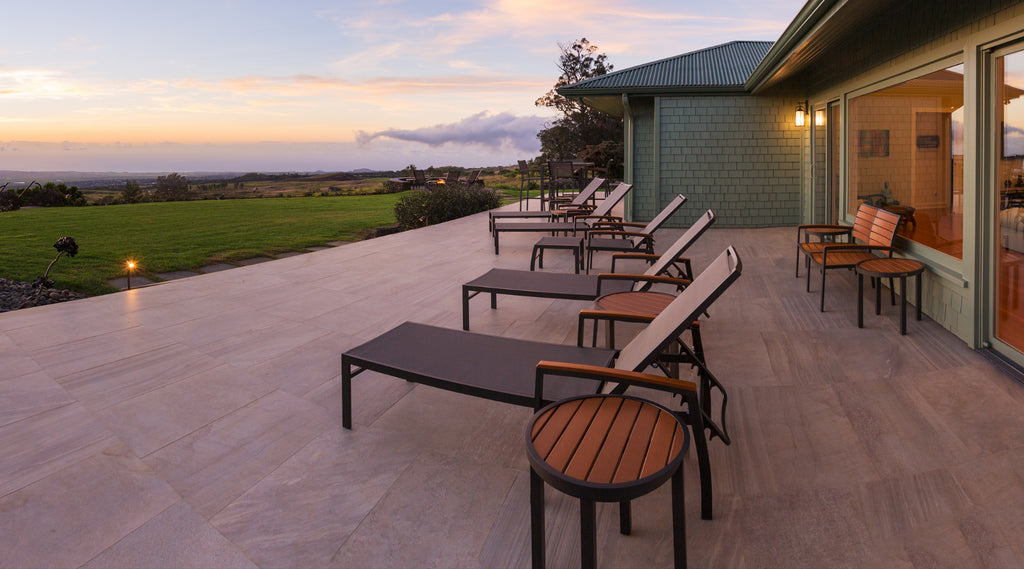Pool Parties, Water Fights, Summer Storms: 5 Tips for Preventing Water Damage to Hardwood Floors and Decking
Posted by SPECIAL HARDWOOD

Water is a hardwood floor’s worst enemy. Even during the care-free summer months, when pool parties and water fights abound, it’s essential to safeguard your hardwood floors and outdoor decking against unnecessary water exposure. Here are five helpful tips for keeping your floors high and dry this summer.
1. Use Floor Mats or Rugs
The first and easiest step to prevent water damage to indoor hardwood floors during summertime festivities is using floor mats or rugs. Place them strategically by entrance points to absorb any water tracked in from wet feet, dripping bathing suits, or drenched pets.
Even in a super soaker-free environment, your shoes can track water inside the house after a summer storm. Having an absorbent mat at the door does a great job of catching a significant amount of this water. For added protection, you might consider adding a non-slip rug pad under your mat or rug and check the wood under any mats or rugs periodically to ensure all the water stays where it’s supposed to and not on your hardwood floors.
2. Use Plastic Pans Underneath Home Appliances
Home appliances, like refrigerators, dishwashers, and washing machines, are notorious for leaking water, which can easily damage hardwood floors over time. To prevent this from happening, place a shallow plastic pan below each of these appliances. These pans help catch any water leakage and can be replaced easily if damaged, providing easy (and affordable) protection for your hardwood floors.
3. Invest in Quality Wood Treatments
Consider investing in a high-quality treatment like Monocoat Oil Plus 2C for hardwood floor protection. It’s a favorite among homeowners due to its unique formula that saturates and bonds with your wood fibers, protecting your hardwood floors from potential water damage. Best of all, it’s available in a range of colors to suit your preferences.
And it doesn’t just waterproof your floors. Monocoat Oil Plus 2C also nourishes and restores them in case of any water damage to hardwood floors. It’s ideal for high-traffic areas, ensuring your floors maintain their original beauty even under rough use.
4. Regular Maintenance of Outdoor Decking
Now let’s turn our attention outdoors. Though exterior wood is more robust and made to withstand harsh weather conditions, including rain, this doesn’t mean you should ignore its care entirely. Regularly sweep your outdoor decking to keep it clear of leaves and debris, which can trap moisture, leading to stains and rot. Additionally, clean your deck at least once a year with high-quality deck cleaners to remove mildew and prevent its buildup.
5. Proper Care of Outdoor Decking
Like hardwood floors, outdoor decking also significantly benefits from a little preventive TLC. You’ll want to keep it clean, inspect it for moisture damage or spots where water might pool, and clean it regularly with a specially formulated exterior woodcare soap. You should re-treat your deck every two to three years to maintain its integrity against the elements. Remember, the frequency can vary depending on your local climate and your deck’s exposure to sun and rain.
Beautiful Hardwood, Rain or Shine
Pool parties and summer storms don’t have to spell disaster for your beautiful hardwood floors and outdoor decking. These simple but effective measures can help you enjoy your summer activities without worrying about unwanted water damage indoors or out (and fall is just around the corner!).
Preventive maintenance is the key to preserving the beauty of your wood floors and decking. Regular cleaning, using absorbent mats, and keeping up with regular wood treatments can go a long way in keeping water-related damage at bay.
For more tips on caring for your hardwood surfaces with high-quality, eco-friendly formulations from Special Hardwood, check out our blog with tips and information to help you get the most out of your wooden surface, rain or shine.

